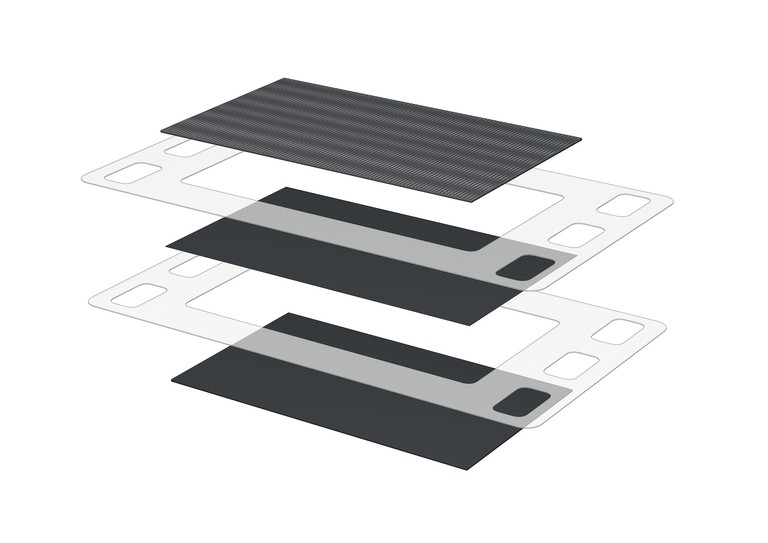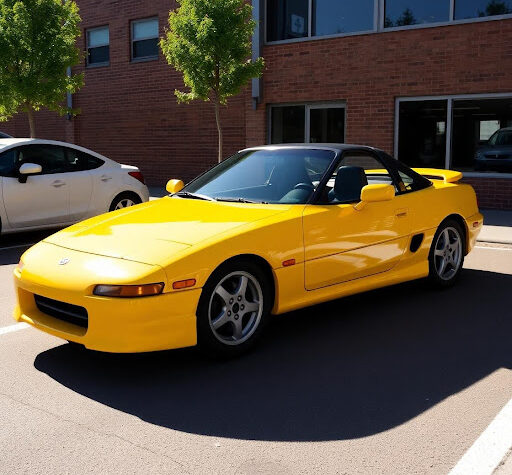
TECHNOLOGIES TO POWER THE VEHICLES OF THE FUTURE
Fuel cell vehicles are considered a potential solution in the battle against climate change. The Optima Group has now developed machine solutions to increase the production capacity of fuel cells. As a result, the required production steps – coating, cutting, assembling the individual layers, and stacking – have been automated. This establishes the Schwaebisch Hall-based family-owned Group as a leading supplier of complete solutions, offering fuel cell production worldwide. More information will be available on September 14 and 15, 2021 at the f-cell trade show at the Haus der Wirtschaft conference and congress center in Stuttgart – or by contacting Optima directly.
According to experts, we must significantly increase our efforts in the fight against climate change. Hydrogen is attracting attention as a propulsion technology. Many hybrid buses have been equipped with fuel cells to generate electric power. This significantly increases the range of an electrically-powered vehicle.
Furthermore, the refueling process is considerably faster than charging a lithium-ion battery. These advantages are particularly effective for vehicles used for long periods with minimal breaks, for example trucks, autonomous transport systems, and industrial trucks in large logistics centers.
Growing demand for fuel cells
Greater use increases the need to produce fuel cells and drives demand for faster production. At the same time, extensive automation of the manufacturing process is essential to reduce production costs. At the heart of the fuel cell is the membrane electrode assembly, or MEA for short. This is permeated by hydrogen and oxygen, which react with each other within the MEA. This electrochemically generates the electric current required for propulsion of the vehicle. An MEA basically consists of an ion-conducting electrolyte membrane with a catalyst layer on the anode and cathode side (catalyst coated membrane, CCM) and gas diffusion layers (GDLs). These layers are delivered to the fuel cell or the MEA manufacturer as rolled goods or produced by the manufacturer itself. Here they need to be cut into the size required, assembled, and bonded.
Complete solutions for all manufacturing stages
“After spending several years in development, we are pleased that we can offer suitable machine solutions for all process stages involved in manufacturing MEAs, despite the high barriers to entry,” says Juergen Bareiss, Head of the Optima Life Science business unit where the manufacturing technologies for fuel cells were developed. In cooperation with Coatema Coating Machinery GmbH, total solutions that include unwinding, coating, and cutting GDLs as well as combining the GDL and CCM to form the finished MEA are now available. Stacking the finished MEAs into a fuel cell stack occurs in the final stages of development. This machine solution will also be market-ready by the end of the year.
“This was mainly possible due to synergy effects within the broad-based Optima Group, the courage to innovate, and preexisting technologies as well as know-how in web converting,” explains Bareiss. Technologies previously used for manufacturing and packaging processes in the medical technology, consumer goods, and paper hygiene industries have proven to be extremely valuable. This makes Optima a leading supplier of complete solutions for fuel cell production.
“With our solutions, we strive to become the market leader in the field of complete solutions for fuel cell production and contribute to a more environmentally-friendly mobility,” says Bareiss. “In addition to sustainable business and machinery, developing environmentally friendly and future-proof solutions for our target markets is also important to us as part of our overall sustainability strategy,” adds Dominik Broellochs, Group Sustainability Manager at the Optima Group. The fuel cell, he explains, is precisely the kind of solution that will enable sustainable mobility.
Market with great growth potential
“In contrast to lithium-ion batteries, German companies could become technological leaders in fuel cell development and manufacturing,” says Werner Volk, Director New Applications/Concepts at Optima Life Science, who has been leading the developments. Optima is a global company that can supply machine solutions on an international scale along with the support required by producers who are interested in increasing their capacity. Anyone who is looking to switch from timed, piece-based production to continuous processes with higher outputs will find the right partner in Optima, says Volk. He will be on hand to answer questions regarding this subject at the f-cell trade show on September 14 and 15, 2021, at the Haus der Wirtschaft in Stuttgart (List hall, booth no. 46).
More about this topic at: www.optima-packaging.com/fuel-cell




More Stories
Accelerating The Development of Hydrogen Vehicles & Infrastructure – Europe’s Biggest Players Meeting at Premier Event
Automotive IQ Announces the 15th Annual Automotive Functional Safety Week 2025
Major Automotive Companies to Share Latest Developments in Steering, Braking, Chassis and Suspension Systems at Premier Industry Event